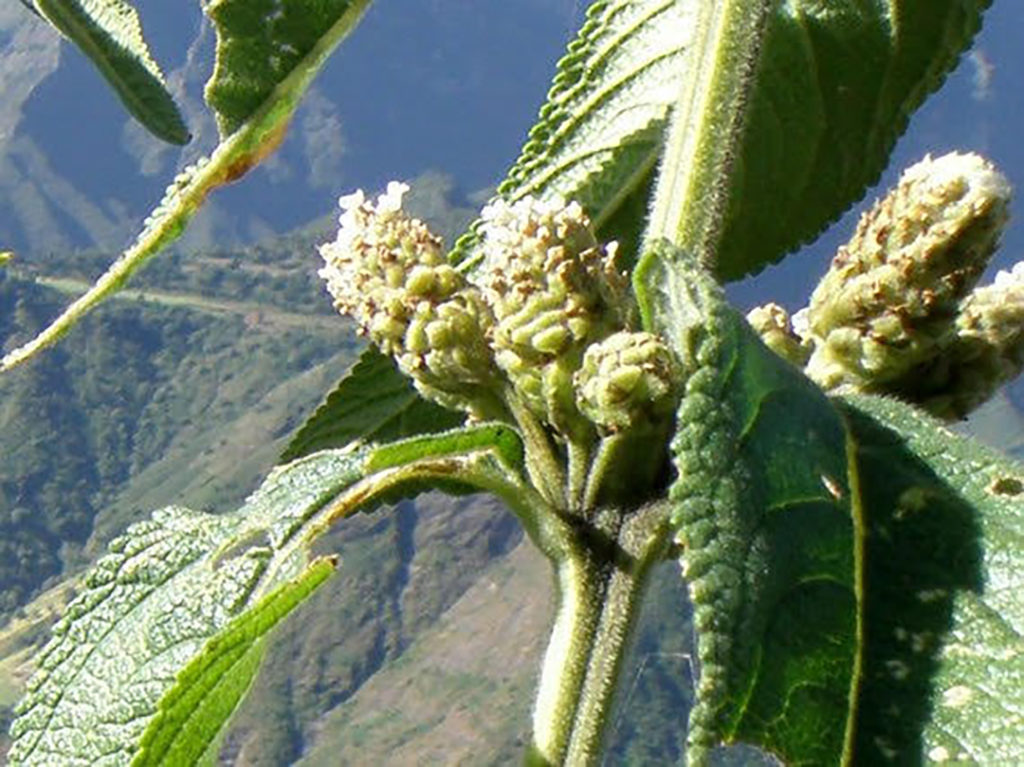
Gambia
Gambian Bush Tea
Lippia adoensis and Lippia abyssinica

General Description / Cultural Significance
Gambia is made up of a large variety of ethnic groups, and the majority of people in the country are Muslims and participate in traditional religious practices, beliefs, and customs. For celebrations, they wear forms of their traditional dress and emphasis is placed upon people coming together as extended family.
They rely on traditional medicine, which is woven into their rituals and practices. Gambian Bush tea, Lippia adoensis, is an herbaceous shrub indigenous to Gambia that emits a significant, recognizable scent, which is minty and camphorous. The dried leaves are traditionally used in the preparation of spiced butter and as a food flavoring. In medicine, Lippia adoensis is used superficially to treat skin diseases like eczema. Based on scientific studies, the plant is highly therapeutic. It is part of the Verbena family, meaning it is related to the lemon, so it is not unexpected that it is especially used to make Gambian Bush tea, often consumed in order to fight off the flu. Lippia abyssinica is also used to make Gambian Bush tea, and is said to have a taste similar to basil. Many Gambians add sugar to the drink, and use it to treat coughs.
Climate Change/Conservation Status
Gambia is one of the most densely populated countries in Africa. The population explosion in the country has led to deforestation and the loss of healing plants to make way for agriculture, which employs the majority of the workforce. Crop land has increased at the expense of natural woodland and wetland ecosystems that support much of the country’s diversity.
The Gambia is vulnerable to the rising sea, flooding and erosion because of the large percent of it that sits at a low elevation. Salinization of the coastal aquifers, which are the primary source of useable water, is increasing. Salinization is also affecting mangroves, swamps and rice growing areas. Flash flooding comes from river and rains during the flooding season and is extending to many areas of the country. Windstorms too are common, especially at the end of the rainy season and they have become more severe, causing damage not only to property and life, but to ecosystems as well.
Plants of the Lippia species have naturally occurring essential oils that have been analyzed and found to have several major healing compounds, which are antifungal, antimicrobial, and insecticidal. The oil also has antioxidant activity. The aroma of these plants has been favored by Gambians for generations, and have been used for traditional medicine. However, because the biological activities of the essential oils are so useful and the plants are so easy to cultivate, pharmacological and biological studies suggest that these plants should be used for greater commercial exploitation. Lippia species are well-adapted to the climate of Gambia, and don’t require as much maintenance as Gambia’s other crops, which are watered solely by the rain and are vulnerable to droughts.
Alternate Names
Butter clarifying herb
Kosearut
Koseret
Lemon herb

